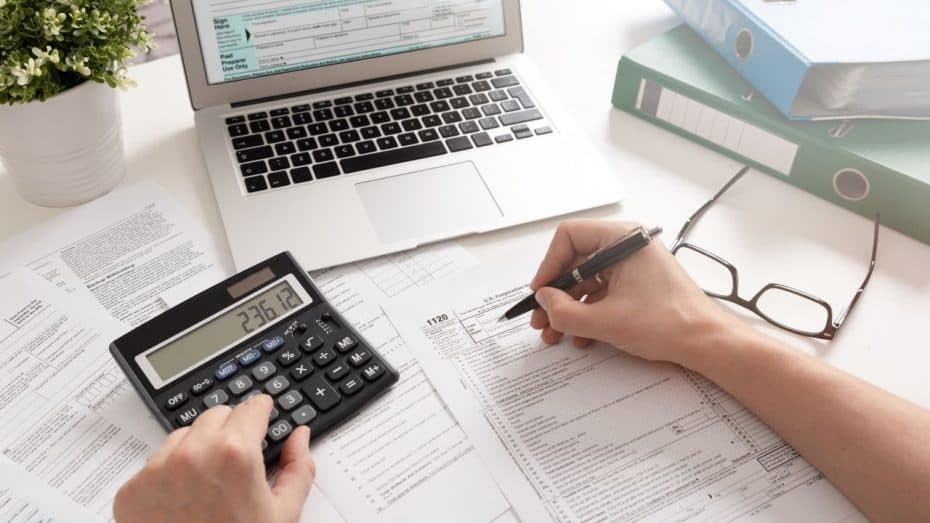
REtipster does not provide legal advice. The information in this article can be impacted by many unique variables. Always consult with a qualified legal professional before taking action.
Finding the right accountant is something many real estate investors (both new and experienced) have an extraordinarily difficult time with.
An accountant is an undeniably important member of your team who can play a HUGE role in your ability to:
- Find and leverage as many tax benefits as possible (of which there are MANY for real estate investors).
- Follow the rules and regulations of our ever-changing tax code.
- Keep track of your ongoing business transactions.
- Stay organized using a financial record-keeping system that makes sense.
This person is a vital component of your business. If you’re trying to wear this hat by yourself, I can almost guarantee you’re either leaving money on the table OR working a lot harder than you need to.
Like a property management company or a general contractor, a good accountant can be worth their weight in gold. These people can save you MUCH more than they’ll cost, and in the long run, if they're doing their job right, they will easily justify any expenses they incur for your business.
When working with the right accountant, you’ll be happy to pay them each year because they’ll deliver more value than they cost!
How To Interview An Accountant
As a former real estate banker, I’ve had to look through thousands of tax returns. I've seen firsthand that not all accountants are created equal.
Some are disorganized, make huge mistakes, don’t communicate well, aren’t responsive, and don’t understand how to find the right tax breaks for their clients.
On the other hand, some are brilliant, easy to work with, and save their clients gobs of money (paying for themselves many times over), all because they know what they’re doing.
Luckily, I have some insider knowledge in this realm because I have a lot of experience looking through accounting work in my banking and real estate investing career, and I’m also married to a CPA. My wife has worked in public accounting since 2006 and has a wealth of experience with many different businesses.
I sat with her, and we compiled a solid list of questions (both from an investor’s perspective and a CPA’s) that you can use to find the right accountant for your business. These questions will help you understand who you’re dealing with before committing to paying them a dime.
Once you’ve landed on two or three accountants (or accounting firms) that look promising, give them a call and run through the following questions:
Questions About Their General Background
- What types of businesses do you typically work with?
- Do you specialize in any particular niche of business accounting?
- How many of your clients have a similar structure to my business? (note: you'll have to explain how your business works before they can answer this)
- Are you a stand-alone shop, or do you work for a larger CPA firm?
Questions Regarding Their Level of Expertise
- Are you a licensed CPA?
- Do you have other certifications that would give me a reason to hire you? (note: a certified public accountant is a bonus, but not a must, for what we need them to do)
- What services can you provide me (e.g., QuickBooks, tax returns, tax planning, tax advice, or anything else)?
- How many years of experience do you have as an accountant?
- What percentage of your clients own income-producing real estate or flip properties as their profession?
- Do you own any investment properties yourself? If so, what are they (e.g., rental properties, vacation homes, farmland, properties you've sold on land contract, etc.)?
Setting Proper Expectations
- How much capacity do you have for additional work right now?
- Will anyone else in your office be handling my books besides you? If so, what is their level of expertise in real estate accounting, and how much oversight will you have over them?
- What kinds of ongoing things will you need from me to do your job (i.e., What will you expect from me)?
- What do your services cost (based on the specific duties I need you to perform for me)? Do you charge hourly, monthly, or annually?
- Are there any particular ways you can help me save money on taxes?
- Will I have to sign a contract/agreement if we decide to do business together? If so, can I review it beforehand?
- Can you give me any references? (note: not all accountants can provide this because it may breach their confidentiality agreements. This question is worth asking – but if they can't provide any references, this shouldn't be a show-stopper by itself)
What Are the “Correct” Answers?
There is something tricky about relying solely on these questions because there isn't necessarily one right answer.
For example, if an accountant has no existing REI clients or even only a year or two of experience, this doesn't automatically mean they'll be a bad accountant. It's just one of the many colors that go into painting the picture of what you can expect from them.
The point is to ask all the questions and have a conversation. Simply talking with them and figuring out their experience and character will help you understand whether you can (or can't) have confidence in their abilities to serve you adequately. Especially if you talk with two or three of them, one will almost certainly come out ahead of the others.
You could expand the conversation even further depending on the answers to these questions. Still, in most cases, the information you'll learn here will give you strong indicators of whether you’re dealing with a competent real estate accountant.
A good accountant should be able to explain fairly complicated topics in a language YOU can understand. As you open up the lines of communication with these initial questions, you'll learn how skilled they are at explaining themselves and conveying complex concepts in language that makes sense to you.
Remember, it's not your job to know the tax code, all the strange acronyms, and government regulations. You're paying THEM for this expertise, and they should be able to apply this knowledge to your benefit.
A good accountant will also respond to you quickly (within 48 hours or less), regardless of whether you reach out to them via phone or email. If they don't respond within a day or two if they don't respond AT ALL, or if they respond in a way that doesn't make sense or answer your questions, drop them like a hot potato and look for someone else. You don't have to settle for sub-par. If this highly paid professional can't impress you with their first contact, they aren't likely to do any better as you develop a working relationship with them.
The Devil is in the Details
I cannot emphasize this enough. If you're running an even remotely complicated business, you must work with an accountant who pays attention to the details.
Most accountants (at least, most of the ones I've met) aren't necessarily the most “charming” or “colorful” personalities you'll ever meet. If you're interviewing an accountant who isn't a natural-born “people person,” this isn't bad. When it comes to the core competencies of an accountant (i.e., the person doing the actual accounting work for your business), personality is NOT a vital component of doing the job well; it's just a bonus.
Most of us naturally gravitate towards the people we “like,” but remember: we want to find the most competent person for the job. For this job, they don't need to be a social butterfly.
Your goal with this interview is to uncover the facts, not the fluff. An accountant's skills and attention to detail have very little to do with their personality, so make sure you're looking for someone who comes across as the best qualified. All else is secondary.
Still Need Help?
If you want to see a directory of CPAs, accountants, and bookkeepers submitted by other members of the REtipster Community, be sure to check out the list of accountants we're building on REtipster!

















